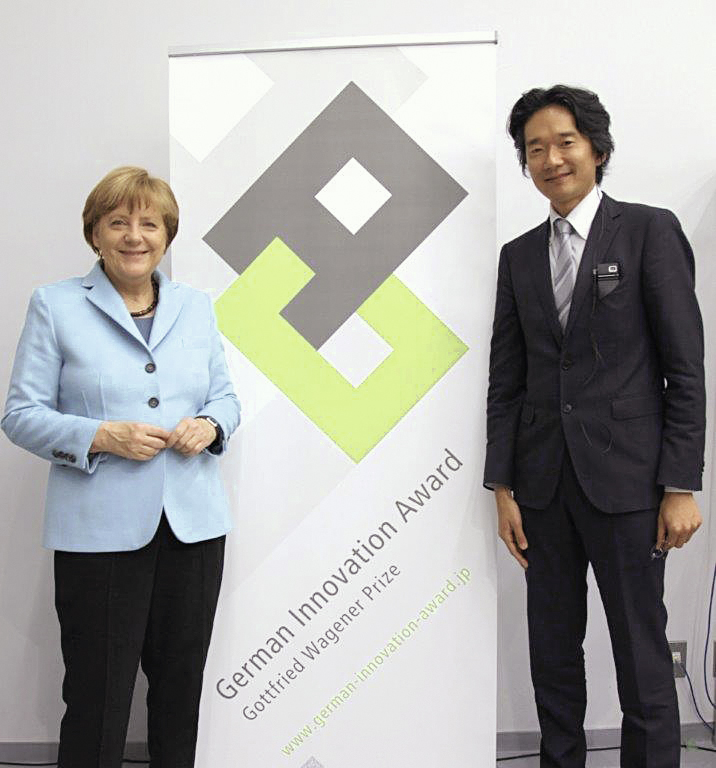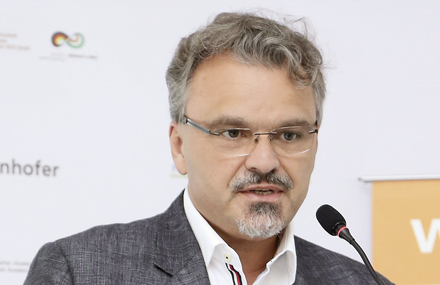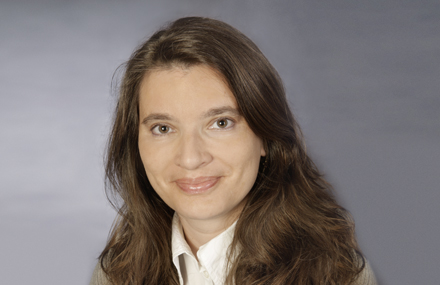German Houses and Centres of Research and Innovation
Six German Houses and Centres of Research and Innovation have been set up on four continents, aiming to create a united presence of German research and innovation abroad. Two of them are located in Asia: in Tokyo and in New Delhi. They support the German Government's efforts to maintain its strength in innovation and apply it internationally in order to stay competitive in the global markets.
The six German Houses of Research and Innovation (Deutsche Wissenschafts- und Innovationshäuser, DWIH) have been established since 2009. They are part of the German Federal Foreign Office’s Research and Academic Relations Initiative which, in turn, is part of the German Government’s policy to promote the international-
isation of science and research.
The DWIHs’ functional duties are to:
- promote Germany as a research location and showcase it as a centre for research and innovation;
- provide a forum for international dialogue and scientific exchange;
- provide support and services to international researchers and act as a “bridgehead“ for German research and innovation in the partner countries.
The Federal Foreign Office is implementing this project in cooperation with the Federal Ministry for Education and Research and in close collaboration with the Alliance of Science Organizations in Germany and the Association of German Chambers of Commerce and Industry. The DWIHs are located on four continents: in New York, Tokyo, New Delhi, São Paulo, Moscow and Cairo. They operate under the umbrella of the Science and Technology Strategies of the German Government – but each with an individual focus in line with the requirements of their host country. The two Asian DWIHs are good examples of the individuality as well as the broad range of DWIH activities.
The German Research and Innovation Forum Tokyo
Bringing research skills and business skills together
For German research and business, Japan is a highly valued partner in Asia. As mature industrial countries Japan and Germany are facing similar challenges and because neither country has plentiful energy or raw materials, "knowledge" represents a key resource. Although the Japanese system still remains to some ex-
tent self-contained, the pressure to globalise is currently driving Japan’s desire for closer integration in international research and business networks. This is where the German Research and Innovation Forum Tokyo (DWIH Tokyo) comes into its own.
A consortium managed jointly and effectively by the German Rectors' Conference and the German Chamber of Commerce and Industry in Japan, it creates an ideal environment in which its German and Japanese partners benefit particularly from its practice of linking academic and industrial research. The DWIH Tokyo focuses its efforts on areas which are relevant to the societies of both countries and in which academic and industrial re-
search business 'cross-fertilise' to initiate cooperation and innovation. Against the background of the conse-
quences of the triple disaster in Fukushima in March 2011, research into energy and sustainability plays a pro-
minent role but issues such as ageing populations and the future development of universities in both countries also form part of the dialogue.

The German Innovation Award, also known as the Gottfried Wagener Prize, is the DWIH Tokyo's flagship project. It helps the German companies and organizations that partner with the prize to extend their networks to include Japanese science and research. Coordinated by the DWIH Tokyo, the prize is funded by German organisa-
tions operating in Japan. BASF, Bayer, Bosch, Continental, Daimler, Evonik, Merck, Schaeffler and Siemens donate prize money totalling ¥ 10 million to be awarded annually to Japanese early career researchers in the categories of Mobility, Materials, Life Sciences and Energy & Industry. Many German-Japanese projects have been launched through this exemplary initiative with some progressing as far as licensing contracts.
The German Science Days in Kyoto were another successful example of the potential offered by the partnership between German research and business organizations in Japan. In October 2013, 25 well-known German universities, research institutions, companies and academic organizations, among them the Universities of Cologne, Göttingen, Heidelberg, Marburg, Münster, Tübingen, Stuttgart, the FU Berlin, the HU Berlin, the Technical Universities in Clausthal, Dresden and Munich and the Karlsruhe Institute of Technology, were represented on the campus of Kyoto University. Themed "Research for Sustainable Development" the event brought together more than 350 students and researchers in eight expert workshops covering different topical aspects of this subject.
The German House for Research and Innovation New Dehli
Opening millions of opportunities
Germany and India have strong scientific and economic ties, reflected by the fact that Germany is India’s largest trading partner in the EU and after the US the largest partner in research cooperation. Consequently, as part of the German Foreign Office’s strategic - initiatives to internationalize science and research, the German House for Research and Innovation – DWIH New Delhi - was established in October 2012, building on Indo-German bilateral academic exchange dating back to the 1960s.
It aims to enhance cooperative ties between both countries by providing targeted information for Indian students, researchers, academics and commercial institutions about all facets of the German education, innovation and research landscape. As Europe’s largest self-governing research funding organization, the German Research Foundation (DFG) financially supports and administers the DWIH New Delhi consortium, which consists of 15 members, making it the largest consortium in the global DWIH family.
The first fully operational year of DWIH New Delhi was 2013. “Excellence on Tour!” roadshows were initiated in Hyderabad, Ahmedabad and concluded in Kolkata in 2014. The week-long events attracted the interest of many visitors by featuring science exhibitions, lectures, workshops and seminars in the Federal Ministry of Edu-
cation and Research (BMBF) science pavilion. The wide press coverage in local, national and international papers led to a significant increase in enquiries on the website www.dwih.in ,reaching almost 2 million visits by the end of 2014.
The “Excellence on Tour!” roadshows were followed by a new event series “DWIH Horizon: Art meets Science”. The first of its kind was opened in October 2014 at the Indira Gandhi National Centre for the Arts (IGNCA) in New Delhi. In 2015 the series continued in February at Alliance Française Pondichéry and at the Rabindranath Tagore Center, ICCR, Kolkata in March. The combination of a Higher Education and Research Fair with an Exhibition of Indo-German photographic art was well receiv-
ed at the three localities. DWIH New Delhi organized yet another event format - a “DWIH Fair on Higher Education and Research” – in November 2014 at the Malaviya National Institute of Technology (MNIT), Jaipur. With stands of the consortium members set up on site at MNIT, many students and researchers could receive first-hand information on modes of cooperation with German partners or how they can pursue their careers in Germany.

